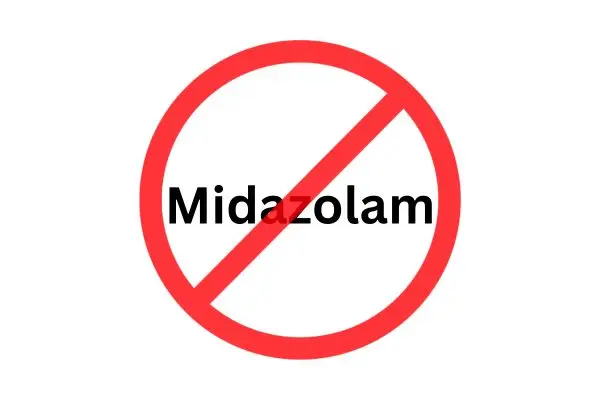Introduction
Ketamine therapy has gained popularity in recent years for its effective treatment of depression, anxiety, and other mental health conditions
However, it is important to note that the administration of certain medications before ketamine therapy can affect its efficacy and safety. One such medication is midazolam (Versed). This paper aims to explain why midazolam is not recommended before ketamine therapy.
Overview of Ketamine Therapy
Ketamine is an anesthetic drug that has been used for over 50 years. In recent years, it has gained attention for its effectiveness in treating depression, anxiety, and other mental health conditions. The mechanism of action of ketamine is complex and not fully understood. However, it is known to act on glutamate receptors in the brain, which results in an increase in brain-derived neurotrophic factor (BDNF) levels. BDNF is a protein that helps to promote the growth and survival of neurons in the brain.
How Is Ketamine Therapy Administered
Ketamine therapy involves the administration of a sub-anesthetic dose of ketamine in a controlled setting, usually in a clinic or hospital. The patient is closely monitored by a medical professional during the treatment session, which typically lasts for about an hour. The effects of ketamine therapy can last for several days to weeks.
Overview of Midazolam (Versed)
Midazolam, also known by its brand name Versed, is a benzodiazepine medication that is commonly used as a sedative and anesthetic. It works by enhancing the activity of a neurotransmitter called gamma-aminobutyric acid (GABA) in the brain, which results in sedation and relaxation.
Why is Midazolam Not Recommended Before Ketamine Therapy
Midazolam is not recommended before ketamine therapy for several reasons.
 Firstly, midazolam is a sedative that can affect the patient’s perception of reality and interfere with the therapeutic effects of ketamine. Ketamine therapy relies on the patient’s ability to process and integrate their experiences during the treatment session. Midazolam can impair the patient’s ability to do so, which can reduce the effectiveness of the therapy.
Firstly, midazolam is a sedative that can affect the patient’s perception of reality and interfere with the therapeutic effects of ketamine. Ketamine therapy relies on the patient’s ability to process and integrate their experiences during the treatment session. Midazolam can impair the patient’s ability to do so, which can reduce the effectiveness of the therapy.
 Secondly, midazolam can increase the risk of respiratory depression when combined with ketamine. Ketamine has a dose-dependent effect on the respiratory system, and higher doses can cause respiratory depression. Midazolam can potentiate this effect, leading to potentially dangerous respiratory depression.
Secondly, midazolam can increase the risk of respiratory depression when combined with ketamine. Ketamine has a dose-dependent effect on the respiratory system, and higher doses can cause respiratory depression. Midazolam can potentiate this effect, leading to potentially dangerous respiratory depression.
 Thirdly, midazolam can increase the risk of adverse events during ketamine therapy. Adverse events such as confusion, agitation, and hallucinations are more common when midazolam is used before ketamine therapy. These adverse events can be distressing for the patient and may interfere with the therapeutic process.
Thirdly, midazolam can increase the risk of adverse events during ketamine therapy. Adverse events such as confusion, agitation, and hallucinations are more common when midazolam is used before ketamine therapy. These adverse events can be distressing for the patient and may interfere with the therapeutic process.
Source: Lapidus, K. A., Levitch, C. F., Perez, A. M., Brallier, J. W., Parides, M. K., Soleimani, L., … & Murrough, J. W. (2014). A randomized controlled trial of intranasal ketamine in major depressive disorder. Biological psychiatry, 76(12), 970-976.

